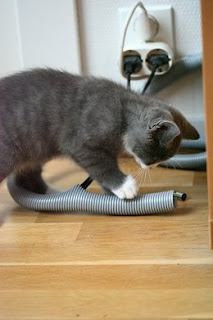 Our modern lifestyles are confusing our circadian rhythm. Constant exposure to lights, stimulation from entertainment and the desire to squeeze more hours into the day just isn’t natural.
Our modern lifestyles are confusing our circadian rhythm. Constant exposure to lights, stimulation from entertainment and the desire to squeeze more hours into the day just isn’t natural.
We evolved over generations to fall asleep when it turns dark and wake with dawn. As evening falls, the alteration in light means we produce melatonin, which helps us feel tired. Just before dawn our adrenal glands push out stress hormones to wake us.
Lack of sleep greatly affects our bodies, including our mood, our cardiovascular system and our weight. Here are a few tips you can follow to ensure good sleeping patterns:
* Get up and go to bed at the same time. By following a routine you’ll long for the pillow at the same time each night. Try to stick to your routine on weekends.
* Go to bed if you feel tired. By ignoring the weary feeling, your stress hormones will battle with the sleep-inducing melatonin.
* If you’re not tired, don’t go to bed. You’ll only end up lying awake clock-watching.
* Get out in the sunshine. Nothing resets the natural circadian rhythm like the sun.
* Make your bed inviting. Your mattress should suit your body. As you sleep, your back is repairing itself from the damage caused by being active during the day. Chiropractors suggest the life of any mattress is seven years.
* Have a milky drink before bed. Milk contains the amino acid tryptophan, which is used to make up the sleep hormone melatonin and the mood hormone serotonin.
* Don’t have a daytime nap. Power naps, where you sleep for 15 to 20 minutes, can be valuable, but sleeping longer and drifting into deeper sleep works against you.
* Keep your bedroom cool. A cooling of the body is a natural part of falling asleep. Make sure your bedroom is well ventilated or have a cool shower or bath about an hour before you settle down. As your body cools, the sleep hormones will trickle into place.
* Only use your bedroom for sleeping. Watching TV in bed stimulates the wrong sort of brainwave response.
* Learn to switch off. Don’t take work problems home. Instead, write them in a diary. Evidence suggests when you put problems into your forebrain and jot them down, they tend not to drift into other parts of your brain and fuel thought-inspired insomnia.
* Avoid drugs and alcohol. Nicotine is a stimulant and is associated with an increase in pulse rate and blood pressure. Alcohol, a depressant, may help you doze off, but if consumed in excess it will disrupt the sleep cycle later in the night and wake you. Sleeping pills should only be taken for short periods because they can lead to daytime drowsiness. Also if used for more than a week they can have the opposite effect.
* Cancel caffeine after midday. Tea, coffee, cola and chocolate are stimulants and people who have a tendency towards insomnia should make midday the cut-off.
* Can’t sleep? Try again. If you’re still awake after 15 minutes, get up, keep the light low, drink warm milk and read for a while.
Be active in the morning
It only takes 30 to 60 minutes of exercise a day to encourage sleep at night, but it’s ideal to do it in the morning. Exercising too close to bedtime increases your heart rate and works against the natural rhythm.
Read more...




















